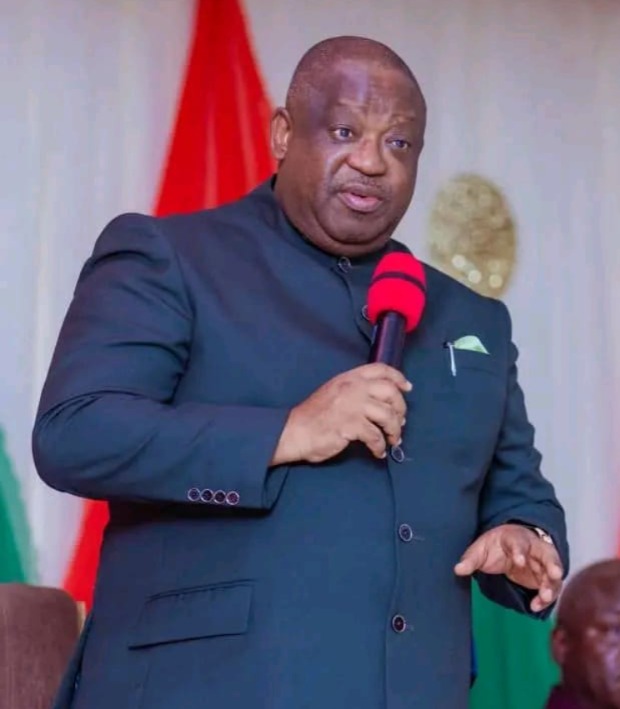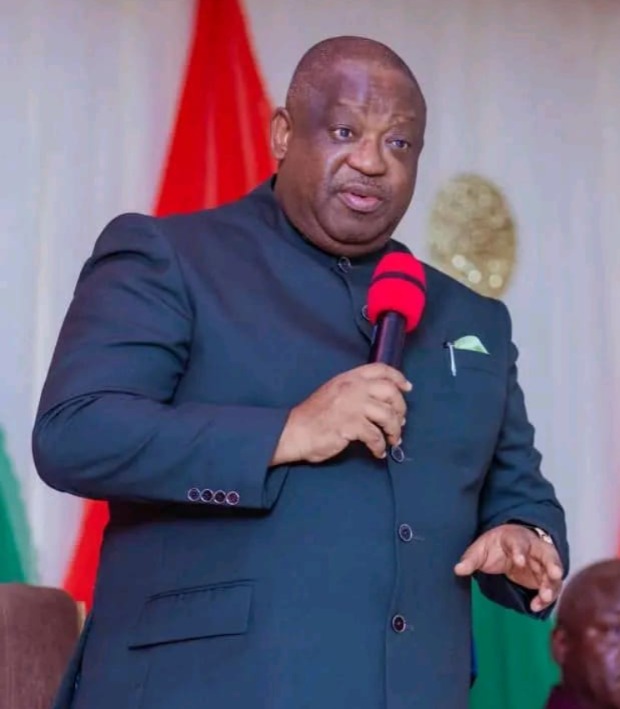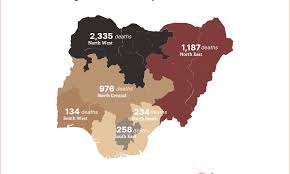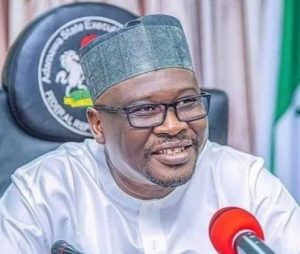Gov. Mutfwang and the End of “Policy Somersaults” on the Plateau
By Dr. Kiden Apat
One of the greatest obstacles to good governance in Nigeria is the phenomenon of policy somersaults—the abrupt abandonment of previous initiatives, usually for political reasons. This practice wastes resources, undermines public trust, discourages investment, and deepens underdevelopment. Plateau State has not been spared. For decades, successive administrations have left behind a trail of abandoned projects, broken promises, and weakened institutions.
Governor Caleb Mutfwang’s rise in 2023, however, has signaled a refreshing break from this destructive cycle. His central promise of restoration rests heavily on policy continuity: sustaining viable projects from past governments instead of discarding them. In a polity often defined by zero-sum politics, this is a quiet but radical shift.
A Troubled Legacy
Plateau is blessed with rich geography, fertile land, and cultural diversity, but it also faces unique challenges—ethno-religious conflict, institutional fragility, and political volatility. The result has been impassable rural roads, decaying healthcare facilities, weak agencies, and eroded public trust.
When Mutfwang assumed office, he inherited this heavy burden. Instead of pursuing populist quick fixes, he recognized continuity as both a strategic necessity and a moral responsibility to Plateau citizens.
A Framework for Continuity
The administration’s approach to reviving abandoned projects has been methodical: identifying stalled projects, assessing their viability, re-engaging contractors, allocating scarce funds, and monitoring progress.
This framework has already yielded dividends:
Fiscal responsibility by extracting value from past investments.
Respect for public resources by refusing to waste sunk costs.
Community impact by prioritizing citizen benefits over political credit.
Trust-building by assuring that government commitments can survive transitions.

Roads as Engines of Growth
The most visible evidence of this continuity agenda is in road infrastructure. Revived projects are improving connectivity, commerce, and security while creating jobs through local contractor engagement.
Notable examples include the Utonkon-Nunku-Keana Road and flyover, the Bokkos-Mangu-Farin Lamba Road (58km), and the Kuba-Tenti-Mangu-Daffo Road (66km). Within Jos metropolis, projects such as the Building Materials–Open University Road and Bukuru Satellite Market Road are nearing completion. Rural communities, too, have benefited, with roads linking Jengre, Dorowa, Gurji, Langkwang, and others being rehabilitated.
The deliberate use of indigenous contractors ensures that funds circulate within the Plateau, stimulating local supply chains, creating employment opportunities, and strengthening local capacity.
Revitalizing Institutions
Equally significant is the government’s effort at institutional renewal. The Plateau State Drugs and Medical Commodities Management Agency (PS-DMCMA), once moribund, has been restructured and made functional. By clearing 44 months of salary arrears, the government has restored morale and ensured steady drug supply across hospitals.
Moreover, strategic appointments of young, competent Plateau citizens to key agencies—such as transport, revenue, and urban development—have injected energy, innovation, and execution capacity into governance.
The Gaps That Remain
Yet, challenges persist. Chief among them is the unresolved backlog of pensions and gratuities—a governance crisis that demands immediate intervention. Thousands of retirees remain in poverty, awaiting benefits they earned over years of service. While fiscal constraints present genuine challenges, the delay imposes a severe humanitarian cost, highlighting the urgent need for focused and timely action.
Another weakness lies in oversight. Plateau still lacks a strong, independent monitoring framework to ensure quality control, prevent financial leakage, and provide transparent reporting. Without such safeguards, the risk of substandard work and project delays remains high.
Security and funding also remain significant constraints. Heavy reliance on federal allocations makes planning vulnerable to oil revenue fluctuations, while insecurity in some communities continues to obstruct implementation.
Institutionalizing Continuity
If Mutfwang’s gains are to endure beyond his tenure, Plateau must institutionalize continuity. The establishment of an Independent Policy Think Tank could safeguard this agenda. Such a body—comprising experts from academia, civil society, and the private sector—would evaluate inherited projects, monitor implementation, provide evidence-based policy advice, and serve as a watchdog for accountability.
By creating institutional memory, this think-tank would prevent future reversals, reduce waste, and embed continuity as a culture of governance rather than the vision of one leader.
A Pathway for Sustainable Development
Governor Caleb Mutfwang’s first two years demonstrate that continuity, not constant reinvention, is the key to sustainable development. By reviving critical infrastructure, restoring institutional strength, and engaging local economies, his administration is fostering trust and laying a durable foundation for Plateau’s renewal.
The task ahead is clear: consolidate these gains, urgently address pension liabilities, strengthen oversight, and institutionalize continuity. If this path is sustained, Plateau can break free from the cycle of wasteful policy somersaults and truly reclaim its title as the “Home of Peace and Tourism.”
Long Live Plateau State!
Apat PhD, is a Lecturer and Policy Analyst. He writes from Babcock University, Ilishan-Remo, Ogun State.




Post Comment